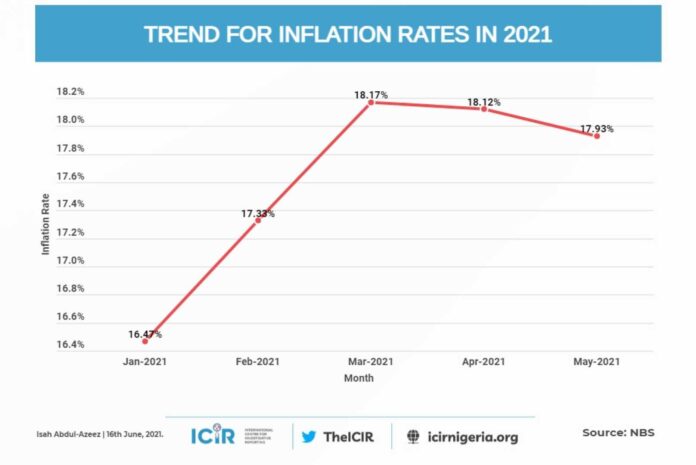Nigeria dey face serious challenges with food prices as production costs continue to rise. According to a recent report by the World Bank, Nigeria is among the top ten countries in the world most hard hit by food inflation, ranking fifth globally and third in Africa, after Malawi and Liberia.
The report highlighted that worsening food security conditions in Nigeria are due to conflicts in food-producing regions, environmental challenges caused by climate change, and other structural issues. For instance, extreme weather events like floods have significantly increased food insecurity across West Africa. In Nigeria, approximately 1.6 million hectares of land, including 342,650 hectares of cropland, have been inundated by floods, affecting 685,770 vulnerable individuals.
The National Bureau of Statistics (NBS) also reported that food prices have seen significant increases. The average price of one kg of brown beans jumped from N692.95 in August 2023 to N2,574.63 in August 2024, a staggering 271.55% increase. Similarly, prices of eggs and bread increased by 121.92% and 113.16% respectively year-on-year.
The high cost of fertiliser, driven by naira devaluation, high exchange rates, and the ongoing Russia–Ukraine conflict, has further exacerbated the situation. Nigeria relies heavily on imported fertiliser, which has become unaffordable for many farmers. This has led to reduced agricultural production and higher food prices. Poultry farmers are also struggling due to the high cost of maize, a key component of poultry feed.
The impact on households is severe, with many reducing their food consumption to once or twice a day, increasing the risk of malnutrition. Doctors Without Borders reported that admissions for malnutrition at their treatment facilities in Bauchi more than doubled in the first half of the year compared to the same period in 2023.
President Bola Tinubu’s policies, including the removal of petrol subsidies and naira devaluation, have accelerated food inflation, which reached a 28-year record of 40.87% in June before tapering slightly. However, recent floods and the upward review of petrol prices have renewed threats to food inflation.

